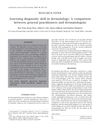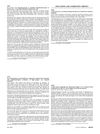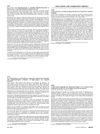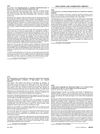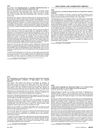Teledermatology Consultation Using a Smartphone Multimedia Messaging Service for Common Skin Diseases in the Korean Army: A Clinical Evaluation of Its Diagnostic Accuracy
February 2014
in “
Journal of Telemedicine and Telecare
”
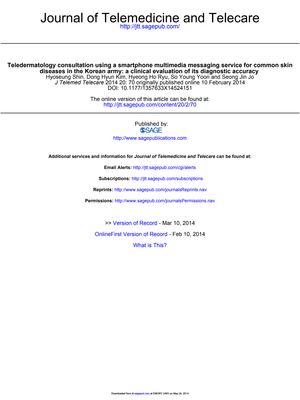
TLDR Smartphone-based teledermatology is effective for diagnosing skin diseases in the military with good accuracy.
In a 2014 study involving 100 male Korean army patients, researchers assessed the accuracy of teledermatology consultations for common skin diseases using smartphone multimedia messaging service (MMS). The study found a mean diagnostic agreement of 71% between teledermatology and face-to-face consultations, with a kappa coefficient of 0.73, indicating substantial agreement. Sensitivity and specificity values for diagnosing eczema, viral warts, and fungal infections varied, with fungal infections having a notably lower sensitivity at 61%. Despite some limitations, such as potential misdiagnoses due to insufficient patient information in MMS texts, the study concluded that smartphone-based teledermatology could be an effective and low-cost method for diagnosing skin diseases in military settings, with superior accuracy compared to non-specialist clinicians.

